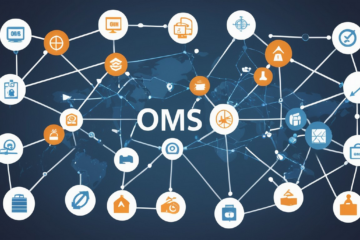Social grants are financial aid programs provided by governments to support individuals and families in need, often targeting the most vulnerable populations, such as the elderly, disabled, and low-income households. These grants play a crucial role in fostering social development by addressing poverty, promoting education, improving health outcomes, and stimulating economic growth. This article delves into the various ways social grants contribute to social development, supported by examples and evidence.
1. Poverty Alleviation
One of the primary objectives of social grants is to reduce poverty levels. By providing a stable source of income, social grants help ensure that recipients can meet their basic needs, such as food, clothing, and shelter. This, in turn, reduces the incidence of extreme poverty and improves the overall quality of life. The SRD SASSA status check system enhances transparency in the distribution of social grants, thereby promoting trust and social development within communities.
Example:
In South Africa, the Child Support Grant has been instrumental in lifting millions of children out of poverty. Studies have shown that households receiving this grant experience significant improvements in living conditions, with increased access to nutritious food and essential services.
2. Improving Health Outcomes
Social grants can have a positive impact on health by enabling beneficiaries to afford healthcare services and maintain a healthy lifestyle. With access to regular medical care and the ability to purchase medications and nutritious food, individuals are better positioned to lead healthier lives.
Example:
In Brazil, the Bolsa Família program provides conditional cash transfers to low-income families, contingent on meeting certain health-related criteria, such as ensuring children receive vaccinations and attend regular health check-ups. This has led to improved health indicators among beneficiaries, including lower infant mortality rates and reduced malnutrition.
3. Promoting Education
Education is a key driver of social development, and social grants can play a pivotal role in ensuring access to quality education. Grants aimed at supporting school attendance and reducing child labor help break the cycle of poverty by equipping the younger generation with the skills needed for gainful employment.
Example:
Mexico’s Prospera (formerly Oportunidades) program offers conditional cash transfers to low-income families, requiring children to attend school and maintain regular health check-ups. This program has significantly increased school enrollment rates and improved educational outcomes among the poorest segments of the population.
4. Economic Stimulus
Social grants inject money into the local economy, particularly in low-income communities. Recipients often spend their grants on local goods and services, creating a multiplier effect that stimulates economic activity and generates employment opportunities.
Example:
Research in Kenya has demonstrated that cash transfer programs for the elderly not only improve the well-being of recipients but also boost the local economy. Beneficiaries tend to spend their grants within their communities, leading to increased demand for goods and services and fostering economic growth.
5. Social Cohesion and Stability
By addressing economic disparities and providing a safety net for the most vulnerable, social grants contribute to social cohesion and stability. When people have access to basic resources and opportunities, social tensions are reduced, and a more inclusive and equitable society is fostered.
Example:
In Nordic countries like Norway and Sweden, comprehensive social welfare systems, including various social grants, have contributed to high levels of social cohesion and stability. These countries consistently rank high on global indices of happiness and well-being, partly due to their effective social safety nets. Must check the procedure of sassa payment dates.
Social grants are a vital tool for promoting social development. By alleviating poverty, improving health and educational outcomes, stimulating economic activity, fostering social cohesion, and empowering individuals, these grants contribute to the creation of more inclusive and prosperous societies. The examples from various countries underscore the effectiveness of social grants in achieving these goals, highlighting the importance of continued investment in social welfare programs to support sustainable development.
Explore comprehensive insights and the latest updates on trending topics at DiscoverTribune.org.




